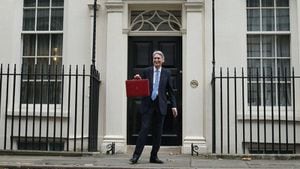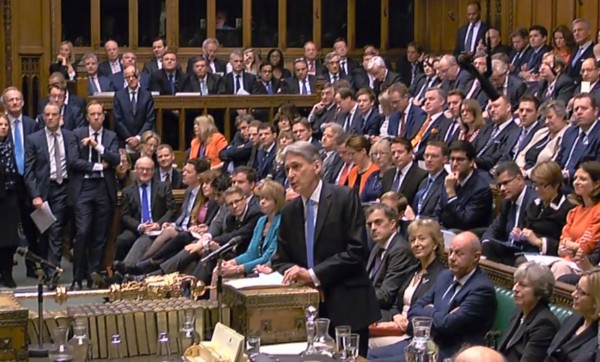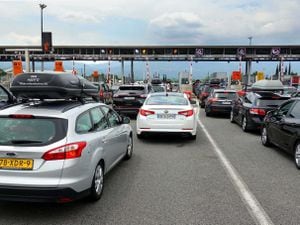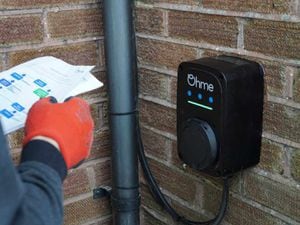Everything motorists need to know about the Autumn Budget
Chancellor Philip Hammond has revealed that new diesels could face higher tax, a freeze on fuel duty and investment in electric vehicle charging infrastructure

Chancellor of the exchequer Philip Hammond has revealed his Autumn Budget, and there’s mixed news for motorists.
The bad press for diesel continues in a year in which sales have dropped by nearly 15 per cent, as the government revealed that any new diesel car that doesn’t meet the latest emissions standards would be bumped up a road tax bracket.
Meanwhile, there’s better news at the pumps, as the chancellor continued the freeze on fuel duty, despite speculation that the Treasury would add 1p to the cost of a litre of diesel. Encouragement for the uptake of electric vehicles also continues, as the government will increase investment in the UK’s charging infrastructure, as well as adding more funds for the plug-in car grant.
Encouraging technology business was high on the agenda too, and this included making Britain a world leader in autonomous vehicle technology. The Treasury revealed plans to have self-driving vehicles on the road by 2021.
For more information on the issues affecting motorists, read below.
More tax for new diesels

The big headline from the Budget was the revelation that new diesels that don’t meet the latest regulations will have to pay more road tax. First-year costs for vehicle excise duty are based on CO2 emissions, but new diesel cars will be pushed up one tax band if their NOx emissions are above 80mg/km in the latest real-world driving emissions tests.
The result is that diesel cars with emissions between 91g/km and 100g/km will pay £20 more at £140, while more-polluting vehicles could see huge increases – those emitting between 131 and 150g/km will see fees more than double, from £200 to £500.
Simon Benson, director of motoring services at AA Cars, said the move put further pressure on the new diesel market, which is already struggling with decreased sales in 2017.
He said: “What consumers need now is clarity. Widespread confusion has knocked the market over the course of the year, so drivers need clear information about what charges both new Euro 6 diesels and older vehicles will face so they can make more informed car-buying decisions.”
No change in fuel duty
Despite all the rumours that diesel fuel duty was set to increase, Hammond actually revealed that it would be frozen.
It means the tax on each litre of petrol and diesel will remain at 57.95p, pleasing industry experts who had warned that an increase would have a huge impact on consumers. The Road Haulage Association had said that an increase of 1p per litre would have cost truckers an extra £414 per year each.
The Treasury says that if the planned increase had gone ahead, it would have cost ordinary motorists an average of £160 per year.
Hammond said: “Fuel duty has now been frozen for the longest period in 40 years at a total cost to the exchequer of £46 billion since 2010.”
Autonomous cars by 2021

Aside from electrification, the biggest shift in the motoring industry right now is towards autonomous cars, and Hammond has announced that self-driving vehicles will be allowed on the roads by 2021.
It is hoped that this will make Britain a world leader in developing autonomous technology – the industry could be worth £28 billion by 2035 and create 27,000 jobs.
However, Charlie Henderson, roads expert at PA Consulting Group, warned that more had to be done before autonomous cars became the norm.
He said: “Our latest research has found that autonomous vehicles could be 10 years away or more. That’s not all bad news. In the intervening period there are some significant challenges to the rapid realisation of AVs, which both government and the private sector needs to address.
“For UK government, one of the main challenges is infrastructure, and in particular, designing roads with AVs in mind.”
Electric vehicle funding
Hammond also announced funding that would encourage motorists into electric vehicles.
He said: “Our future vehicles will be driverless, but they will be electric first. And that’s a change that needs to come as soon as possible for our planet, so we’ll establish a £400m charging infrastructure fund, invest a further £100m in the plug-in car grant, and £40m in charging research and development.”
David Martell, chief executive of charging point infrastructure provider Chargemaster, welcomed the move, saying: “The package of support announced by the chancellor in the Budget is good news for the EV sector. We welcome the continued incentives for electric car purchases through the plug-in car grant.
“The £400m announced to support EV charging infrastructure is good news for charge point suppliers and operators such as Chargemaster, and we hope that some of this funding will be directed towards preparing network connections and reinforcing the electricity grid where required.”





